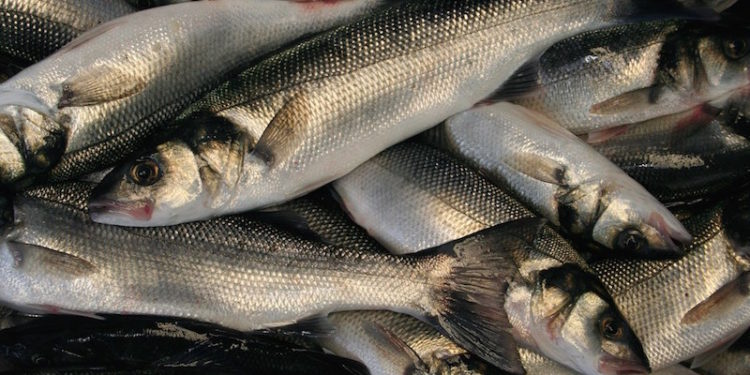A wrong decision has been taken on sea bass, according to the NFFO team that took part in this year’s December Council, and their opinion is that restrictions will lead to increased bass mortality and increased discards.
According to Jim Evans of the Welsh Fishermen’s Association who was part of the NFFO team in Brussels, commercial bass landings in the UK had dropped by around 70% in recent years as a result of draconian management measures taken, including closed seasons and an increase in the minimum landing size.
‘By contrast, the mortality attributed to the recreational anglers has stayed stable or increased,’ he said.
‘ICES is scheduled to review the quality of the bass assessment in February/March at which point it would make sense to review whether the management measures are working, what adjustments might make sense and what the prognosis for this valuable stock might be.’
He said that it is difficult to explain the Commission’s approach at the December Council, with a determination to force through restrictions that he says will do nothing to reduce fishing mortality on bass.
‘But these will certainly increase the discarding of bass unavoidably caught in the mixed demersal fisheries. This seems to be gesture politics – but with calculable adverse consequences. The UK strongly opposed this approach in favour of a more balanced package,’ he said.
‘After all the push and shove was over, the new measures adopted by the Council, restrict landings from the by-catch fisheries even further and can only lead to an increase in discards. Recreational anglers can only catch bass if they are immediately returned to the sea.’
Landing bass will remain prohibited in February and March. From 1st April to the end of the year the following bycatch fisheries will be permitted:
• Demersal Trawl: not exceeding 100kgs per month and 1% of total catch in a single day (down from 3% and 400kgs)
• Seines: not exceeding 180kgs per month and 1% of total catch in a single day
• Hook and Line: 5 tonnes per vessel per year
• Fixed gill nets: 1.2 tonnes per vessel per year
‘The only other thing that I would add is to acknowledge the support and hard work of the Defra and Welsh Government officials who were on the front line on this issue,’ Jim Evans said.









